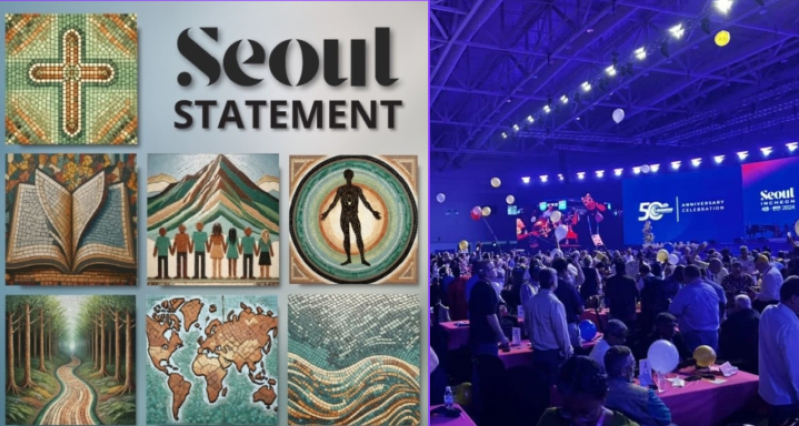
The Seoul Statement, the fourth document in the 50-year history of the Lausanne Movement, was released prior to the opening of the Fourth Lausanne Congress on World Evangelization in Incheon, Seoul. The Seoul Statement emphasizes the responsibility of Christians in global evangelization and calls on churches and believers to respond actively to modern global challenges. As such, Christians can further commonize and promote the practices of faith.
Since its founding fifty years ago, the Lausanne Movement has been guided by the Lausanne Creed (1974), the Manila Declaration (1989), and the Cape Town Commitment (2010). The Seoul Statement, adopted at the Fourth Lausanne Congress, affirms the previous Congress documents and builds on them to reaffirm a commitment to the centrality of the Gospel and faithfulness to the reading of the Scriptures.
The Seoul Statement covers seven key themes outlining the mission and responsibility of Christians in modern society:
I. The Gospel: The Story We Live and Tell
The statement emphasizes that the gospel is at the heart and core of Christian life, and calls on churches and believers to hold to the truth of the gospel. Through this, they are to impact the world as light and salt.
II. The Bible: The Holy Scriptures We Read and Obey
The statement reaffirms the supreme authority of the Bible and encourages believers to be guided in their faith and practice through in-depth study and obedience to the Word of God. A faithful reading of Scripture is the cornerstone of the global church's ability to respond effectively to challenges.
III. The Church: The People of God We Love and Build Up
The statement points out that the Church is the body of Christ and carries the commission of making disciples. Even in the face of external challenges and internal threats, the Church must be faithful in proclaiming Christ and revealing His glory in diverse ways.
IV. The Human Person: The Image of God Created and Restored
The statement emphasizes that the human person is created in the image of God and restored in Christ. This section specifically points to the fact that both men and women are God's creatures and are called to live holy lives in Christ.
V. Discipleship: Our Calling to Holiness and Mission
Believers are not only to pursue personal holiness, but also carry the calling of being missionaries. The statement encourages churches to establish sound accountability systems in discipleship and to develop ministry leaders to model healthy leadership and management.
VI. The Family of Nations: The Peoples in Conflicts We See and Serve for Peace
In a world full of conflict, the Church as the house of all nations should see those who are suffering, praying for them and serving them. Christians should be committed to proclaiming the gospel of Jesus Christ so that there can be peace and reconciliation in a broken world.
VII. Technology: The Accelerating Innovation We Discern and Steward
The statement recognizes technology as an expression of human creativity created in the image of God, but warns that technological development can also be influenced by sin. Christians are called to critique and participate in technological development with a prophetic vision to ensure that it is consistent with God's will and the well-being of humanity.
The Seoul Statement reaffirms Christian responsibility for all aspects of the gospel, the Bible, the church, and society, and calls believers to contribute to the expansion of God's kingdom through discipleship and stewardship of technology in the present age. The Seoul Statement seeks to raise awareness of the mission of Christians, emphasize the important role of the church and individuals in global evangelization, provide clear direction for the modern church, and call believers to respond to God's call to participate in the spread of the gospel and the renewal of society.






